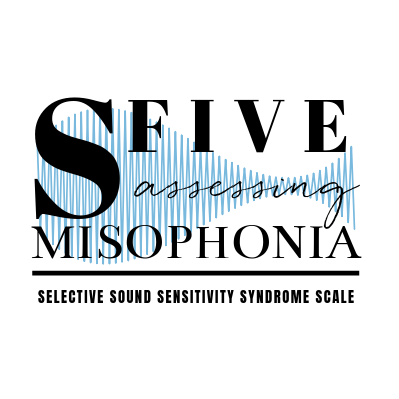It’s exciting times for misophonia research. There are dedicated researchers scattered around the world working hard to understand misophonia better and test out new treatments and coping strategies. The Misophonia Research Fund is investing millions of dollars in world class misophonia research every year.
This page has only just begun! Sign up to our mailing list for the latest updates on new research. If you are a misophonia researcher who would like your study listed, please contact us with details.
Published research
Individuals with misophonia are no strangers to using devices and modifying routines to reduce their contact with troublesome sounds. From trusty foam earplugs to elaborate noise cancelling technology to visiting the cinema at the unsocial hour of 11am on a Monday, for many of us with misophonia, modifications are part of life. But new research suggests that for youth with misophonia, these kinds of strategies might extend to the rest of the family too.
Many of us have sounds that we find to be annoying. But for some people, certain sounds actually trigger extreme reactions. It’s a disorder known as misophonia, where sounds like chewing, sniffing and pen clicking can cause intense emotional reactions – and sometimes even physical reactions, such as an elevated heart rate and spike in blood pressure.
As it turns out, this condition is more common than many realise, as our recent study showed. We estimate that nearly one in five adults in the UK may have misophonia.
Research underway
Researchers at the University of Oxford and King’s College London are recruiting adult participants living in the UK for an online survey study about misophonia. They are trying to better understand misophonia as a potential disorder, by comparing those with severe, moderate and no misophonia. They want to see if there are any unique differences in those with severe misophonia, to better understand the experience of those suffering most with this condition.
This is a new study from a team of researchers in Germany, USA and England and they are currently recruiting participants who have misophonia. The study is testing out a new way of assessing misophonia using a computerised test. Participants have the possibility to win one of 48 amazon vouchers for $50/£50 for completing the study.
If you are to get to Mount Sinai in New York City, please consider taking part in this interesting new study! The researchers are looking for adult participants aged 18-55, who have sound sensitivity. Participants will be asked to listen to potential trigger sounds as part of the study.
Participants will be able to choose between doing a behavioural intervention (computer task) or a drug intervention (Propranolol). Participants who take part in the drug intervention cannot be pregnant and cannot have a history of head trauma or seizures.
New research by Dr. Fatima Husain on how our brains process sounds, looking at misophonia in the context of audiological disorders like tinnitus and hyperacusis.
New research on children and young people with misophonia from Professor Eric Storch at Baylor College of Medicine
New neuroscience research on misophonia from Dr Sukhbinder Kumar at Newcastle University








